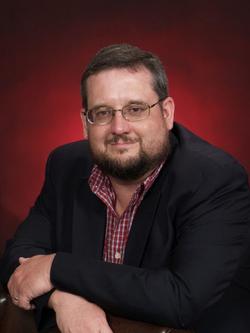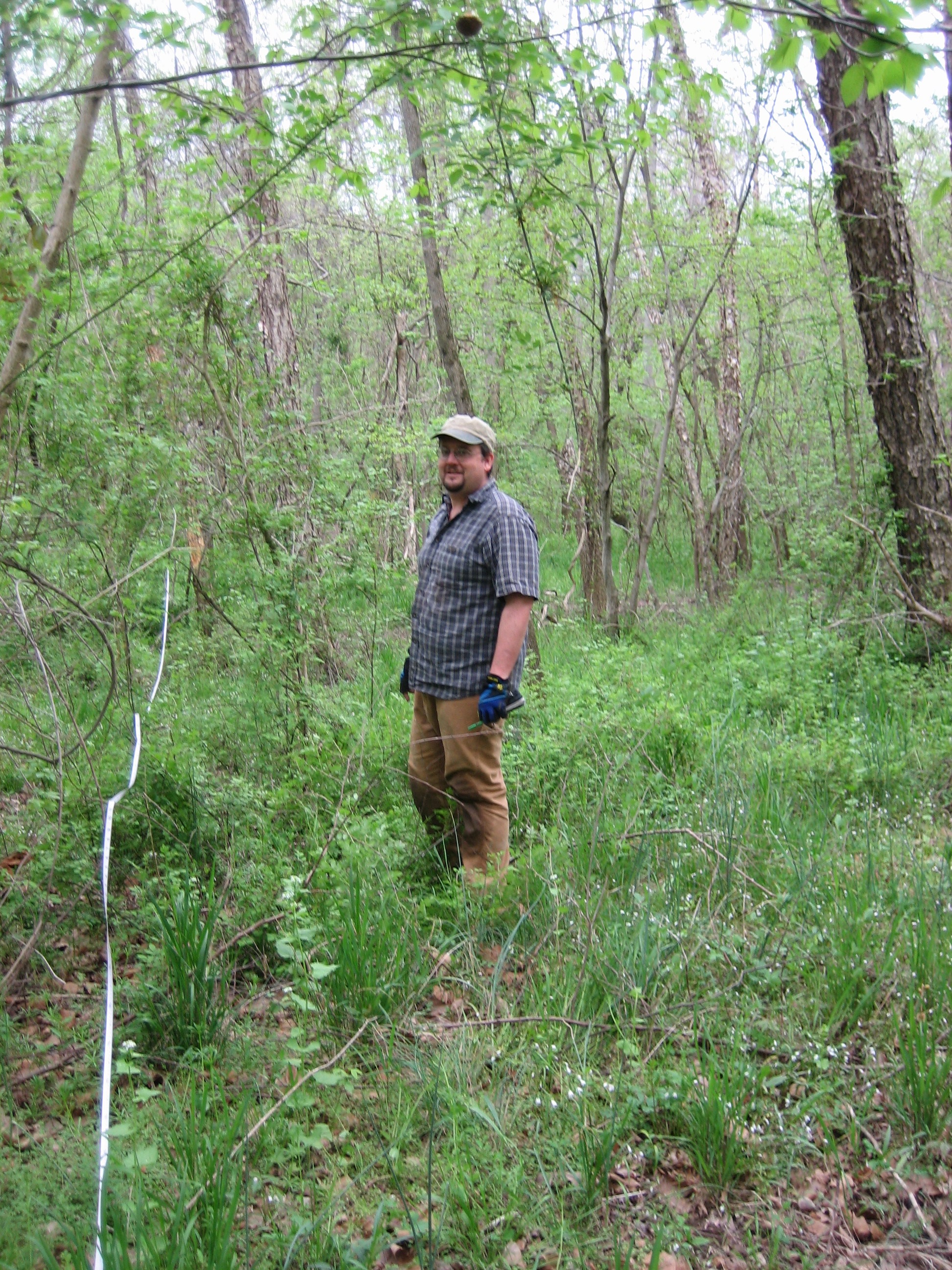
At The Ends and Goals of Higher Education in Twenty-First-Century America: Change and the Calling of the Christian Educator, I had the privilege of getting to know a number of Christians who serve Christ in higher education. One such faculty was Dr. Jay McGhee, who serves as Assistant Professor, Department of Natural Sciences, Northwest Missouri State University. In follow-up to our time together, I asked him a few questions regarding his life in higher education. We pray that you will find these words an encouragement as they “pull back” some of the veil of one Christian’s work-life journey in higher education. To God be the glory! ~ Thomas B. Grosh IV, Associate Director, Emerging Scholars Network
What were the key moments or individuals that guided you toward an academic vocation?
Several factors guided me towards an academic vocation. I began college after a brief stint in the U.S. Army, and one of the things I liked about the army were the field experiences. I had hopes that through college I could pursue a course of study that would allow me to continue to do work outdoors. I’m also a fan of John Steinbeck. His novel Cannery Row, along with his eulogy of his friend Ed Ricketts (a biologist) really influenced me to try wildlife biology as a major. Eventually, I took a course called Evolution & Genetics, which required some active research on my part as an undergraduate. It was my first experience actually conducting science, and I loved it. When I continued my education in graduate school, I earned money as a lab TA, and that got me hooked on teaching. Where can you both teach and practice science? At the university!
How does your faith in Christ and theology of vocation influence your work as a faculty member in your particular field of study?

Martin Luther once told a cobbler that the best way he could serve the Lord was to make good shoes. In a similar way, I’m called to teach good biology, i.e. biology that is up-to-date, well-established, and presented in a way that honors Christ. “Christ-honoring” in this case means teaching to the best of my ability, and presenting material such that it doesn’t serve to dehumanize people, which can sometimes happen in biology. If you aren’t careful, you can fall into conceptual explanations that work off the assumption that people are basically glorified machines, and I try to avoid that. I also strive to interweave teaching and research as much as possible. Rather than compartmentalize the two, I work to develop research programs that undergraduates can easily participate in. This gives them a better education in the form of hands-on training, and allows me to pursue research questions that I find enjoyable, without really having to chase grant monies. I should say, however, that being at a smaller school that focuses primarily on teaching really helps me to do that, I doubt I’d be able to pursue that strategy at a research I university.
How do you nurture your relationship with God?
Primarily, I remain connected and committed to my local church. In physical bodies, cells that do not remain connected to the larger body tend to wither and die, and I think the same principle is at work in Christ’s body, the church. Christians that want to thrive in their relationship with God have to remain connected to their “spiritual nutrient pathway”. In a healthy church, that nutrition for maintenance and growth will come in the form of fellowship with other believers, regular Bible reading and study, application of the sacraments (the Lord’s Supper and baptism) and a regular reaffirmation of the gospel: Christ’s birth, death, and resurrection paying the debt for our sin, making us righteous in God’s sight, sanctifying us and allowing for our adoption as children of God. I’m also trying to develop an active prayer life at home (but it’s been tough going), concurrent with very regular Bible reading. I’d also like to say, that although marriage in academia is not always easy, and certainly God does not call everyone to marriage, my wife has been instrumental in my spiritual growth. Her love and support is such that I do not think I could have grown the little that I have without it.
What books influenced you the most through the academic process? How did they influence you?

Books that have helped me develop how I think about evolution and science: Dennis Chitty’s Do Lemmings Commit Suicide: Beautiful Hypotheses and Ugly Facts, Evolution: The Remarkable History of a Scientific Theory, by Edward Larson, What It Means to be 98% Chimpanzee, by Jonathon Marks, The Soul of Science, by Nancy Pearcey & Charles Thaxton. A book that has helped me think about ecology from a Christian perspective is Francis Schaeffer’s Pollution and the Death of Man.
What topics must Christians be prepared to engage in today’s higher education?
Typically we have 3 missions in the academy: teaching, research, and service to the university and the larger community. These are good missions, and a Christian professor can worship Christ by performing these duties to the best of their ability. By focusing on these, I think we can alleviate the smaller, passing crises that will arise every generation. As such, we need to be focused on developing students into open-minded thinkers who are prepared to engage their chosen vocation so that they can better serve society. While not directly evangelistic, a truly open-minded thinker may be a more fertile mind for the truth of Jesus Christ. We need to develop enjoyable research avenues that help society and reveal the glory of God (thus research does not absolutely require direct application). We need to find ways as a college or university, or as representatives thereof, to serve the larger community. This acts to spread the blessings inherent in the university (knowledge, resources, student workers) to those who would not normally have access to it.
Tom enjoys daily conversations regarding living out the Biblical Story with his wife Theresa and their four girls, around the block, at Elizabethtown Brethren in Christ Church (where he teaches adult electives and co-leads a small group), among healthcare professionals as the Northeast Regional Director for the Christian Medical & Dental Associations (CMDA), and in higher ed as a volunteer with the Emerging Scholars Network (ESN). For a number of years, the Christian Medical Society / CMDA at Penn State College of Medicine was the hub of his ministry with CMDA. Note: Tom served with InterVarsity Christian Fellowship / USA for 20+ years, including 6+ years as the Associate Director of ESN. He has written for the ESN blog from its launch in August 2008. He has studied Biology (B.S.), Higher Education (M.A.), Spiritual Direction (Certificate), Spiritual Formation (M.A.R.), Ministry to Emerging Generations (D.Min.). To God be the glory!

Leave a Reply